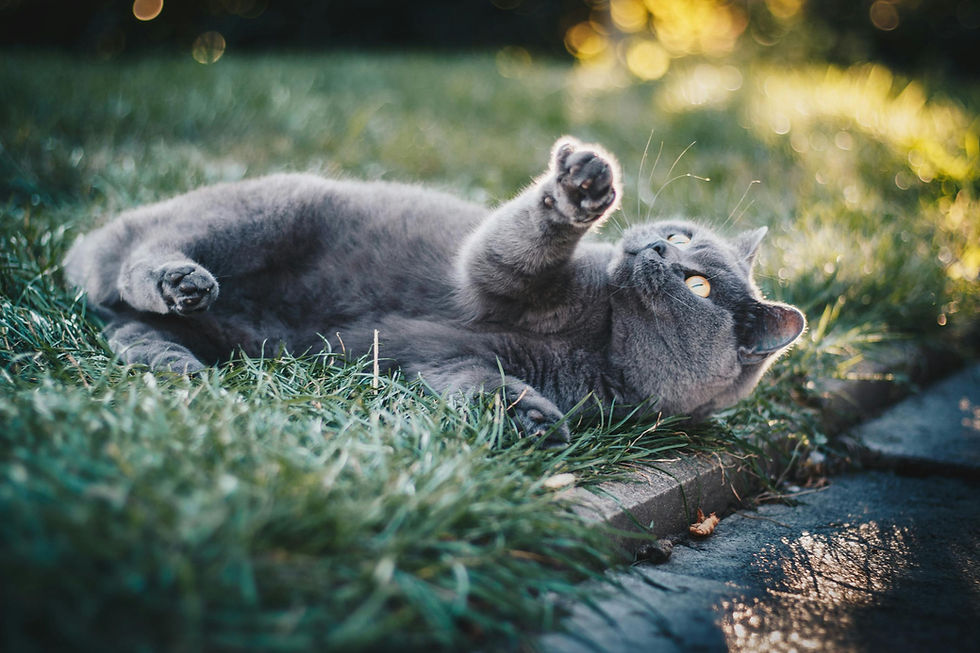Hairball Awareness and Tips to Prevent for Your Cat
- Snappy Tom Pet Supply
- Jan 6, 2021
- 2 min read

April 24th is Hairball Awareness Day and in honor of that let’s look at what causes hairballs and how to prevent it. Hairballs not only are unpleasant for both the owner and the cat they can cause serious health problems.
What Causes Hairballs?
Cat’s are very good groomers and with that, their tongues catch loose hair and swallow it. The majority of the hair passes all the way through the digestive tract with no problems. However, if some hair stays in the stomach, it forms a hairball. From there, the cat will cough it up and because of their narrow esophagus, it is not in a ball shape but rather a tube shape.
Which Cats Are More Prone to Hairballs?
All cats develop hairballs in their lives. Cats that have long hair and shed a lot tend to have more trouble with hairballs. Also, kittens don’t have as much trouble as adult cats because their grooming skills develop over time. Older cats also regurgitate more hairballs.
Symptoms of Hairball Problems
If your cat is displaying these symptoms, then it is a sign they are having problems with hairballs.
Hacking, and Gagging – This is the most typical sign. Your cat is trying to get the hairball up and out. Try some remedies, however, if nothing is helping, call your vet.
Lethargy – If your cat seems slower, sick, and uninterested in its normal activities.
Weight Loss – Is your cat eating normally? If your cat has stopped, eating their meals, it is a sign they are not feeling well. A hairball could be causing a digestive tract obstruction. It is worth a call or a trip to the vet.
Enlarged Belly – If there is an obstruction, their bellies will swell. Take them to the vet, it could be a hairball or something serious.
Constipation– If your cat has a large hairball in their digestive tract, then they will suffer from constipation or diarrhea. A trip to the vet may be in order.
Hairball Remedies
While nothing can be done to prevent hairballs, there are ways that we can reduce them for our cats.
Grooming regularly – The more fur that you remove from your cat by brushing, the less that will end up in their stomachs. It can also be a great way to bond with your cat. If your cat refuses to let you do it, then maybe taking them to a professional groomer is the better option.
Discourage excessive grooming – If your cat seems to be compulsive about grooming, try training them to do another activity instead of licking their coat. Distract them with a new toy or playing with them.
Hydration – Keeping your cat hydrated will help the intestinal tract. The water will keep it lubricated and running smoothly.
High-Quality Cat Food – Good nutrition will help keep hairballs at bay. Feeding your cat high-quality cat food will ensure that they are getting a high protein, low-carbohydrate, grain-free diet. Poor nutrition will cause digestion issues and increase the likelihood of hairballs.
Digestive Supplements – There are some supplements that will improve digestion. Check with your vet on ones that will be best for your cat.







Comments